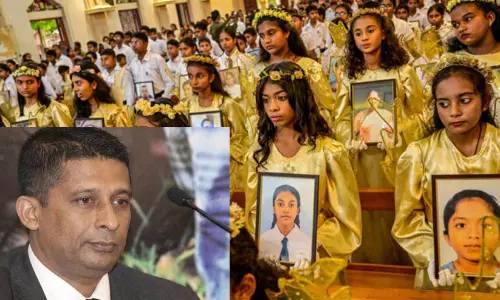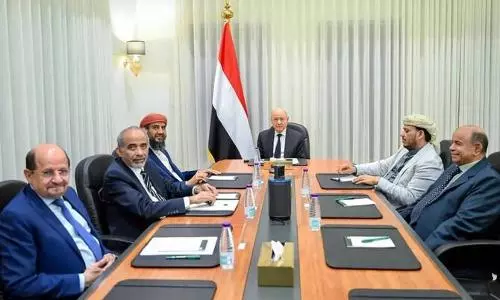
Rohingyan crisis getting complicated
text_fieldsBangladesh foreign minister AK Abdul Momen has appealed to Myanmar at the 27th ministerial level meeting of ASEAN countries to get non-military observers from friendly countries including India to intervene to make the process of repatriation of the Rohingya effective. He also warned that the failure in solving this humanitarian crisis will lead to extremism and terrorism that will threaten the peace and stability in the region. He further drew attention to the fact that his country was forced to accept nearly 1.1 million Rohingyan refugees - who had to flee their home country because of the genocide in Myanmar - solely out of humanitarian considerations and disregarding its environmental and social repercussions. Bangladesh had signed three treaties with the friendly country of Myanmar for the return of refugees, and Myanmar had agreed to take them back after due scrutiny and also to create an atmosphere conducive for their return ensuring security for displaced people. However, none of the refugee have returned in this manner. Instead, Momen pointed out, what was seen in the Rohingya's home region of Rakhine was firing and shell attacks.
The mass refugee exodus of Rohingyan Muslims from Myanmar is one of the painful humanitarian disasters of our time. Rohingyas, who see the Rakhine province as their own land where they had settled two centuries ago, had been engaged in agriculture and allied vocations when the Buddhist majority of Burma, which changed its name to Myanmar, started violent attacks on them. And now the world is convinced that it is because of such onslaughts that the Rohingya, who lost everything, were forced to migrate en masse. News media have carried numerous stories of batches of asylum seekers among the masses who had to leave the country lock, stock and barrel, and boarded rescue boats - loaded many times their capacity and capsized causing huge loss of lives. Malaysia, Thailand and other neighbouring countries received many who had arrived ashore in their territory, but the majority took refuge in Myanmar's adjacent neigbour Bangladesh. Although poor Bangladesh lacks the resources to rehabilitate or feed the million refugees in the country, it undertook the altruistic task in the hope that rich countries, the United nations and neighbouring nations would endeavour for a resolution of the problem. The Bangla agenda was to tread a cautious path of keeping intact its friendly ties with Myanmar with utmost care at the same time trying to create an atmosphere favouable for the return of Rohingyas. As its foreign minister made clear at the ASEAN conference, although the bilateral agreement signed with Myanmar containing several pro-Myanmar conditions did not fully address the grievances and demands of the Rohingya, there has not been any creative step from the side of Myanmar for the implementation of the agreement. Further, the military and Buddhist population have been continuing the Rohingyan hunt in Rakhine province. Despite the fact that after decades of military rule ended in Myanmar, and a democratically elected rule of national League for Democracy led by Aung San Suu Kyi came to power, there was no change in the attitude towards the Muslim minority. As it happens in India now, it is the fear of being blamed for Muslim appeasement that makes Suu Kyi a silent spectator of the oppression, even after withdrawal of seveal awards by awarding bodies like the Amnesty International which withdrew its Ambassador of Conscience Award it had conferred on her.
Although the UN General Assembly in September 2019 and the Non-aligned Movement in November 2019 demanded a change in Myanmar's stance, they all fell on deaf ears. Although China has come forward for a mediator role, there is little hope about its outcome. For, more than any humanitarian issues, China is primarily driven by is its own interests, more than any other considerations. There is also the parallel aspect that China's approach towards the Muslims of Xinjang is not much different from that of Myanmar towards the Rohingya. Thus, if a people who have nothing left to lose except their own lives, become a threat to the very security of a nation and become stooges in economic crimes including smuggling and drug trafficking and turn into recruitment centres of terrorist movements, that is a natural fallout of their plight – to which Bangladesh foreign minister draws the world's attention. And if that happens, there will not any use blaming each other. In India too there are nearly half a lakh Rohingyan refugees. But the policy of the Modi government is to expel them, who live without citizenship, home, ration or education facilities for children and biding their time only at the mercy of those in whom some trace of humanity remains. And their destination after such expulsion will be the same that eked them out: Myanmar with whom India's relations are friendly. Therefore, it is high time that the Modi-Shah team started realising that the best course to take is to work towards a humanitarian solution to their problem by joining hands with Bangladesh through diplomatic channels.

















